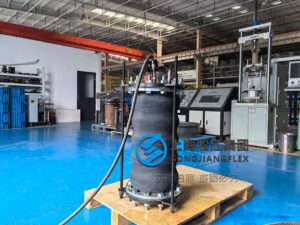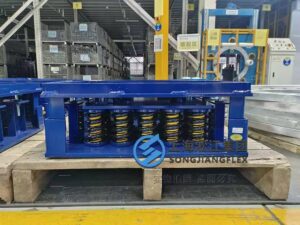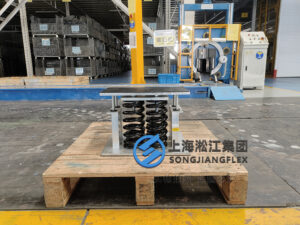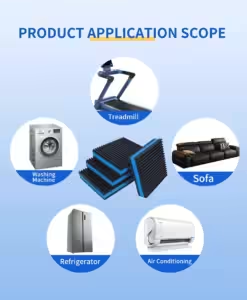Introduction
Centrifuges generate intense vibrations during high-speed rotation, which can affect equipment accuracy and lifespan. Spring vibration isolators effectively reduce these vibrations, ensuring the centrifuge operates stably and efficiently.
Why Do Centrifuges Need Spring Vibration Isolators?
Industrial centrifuges, in particular, operate at very high speeds, producing low-frequency vibrations and shocks. These vibrations cause mechanical wear, noise, foundation damage, and decreased separation accuracy. Spring vibration isolators are specifically designed to absorb and isolate such vibrations, protecting the centrifuge and its support structure.
Applications of Spring Vibration Isolators in Different Centrifuge Types
1. Decanter Centrifuges
Used in wastewater treatment, food processing, and oil refining, these machines bear heavy loads and generate strong vibrations at high speeds. Installing spring vibration isolators at the equipment base effectively cushions vibration shocks, preventing foundation cracks and seal failures.
2. Disc Centrifuges
Operating at extremely high speeds to separate fine particles, disc centrifuges are highly sensitive to vibrations. Spring vibration isolators reduce resonance risks, alleviate mechanical fatigue, protect precision components, and ensure separation quality and equipment longevity.
3. Tubular Centrifuges
Used for processing high-viscosity liquids and difficult separations, tubular centrifuges produce significant vibration forces during operation. Spring vibration isolators disperse these mechanical impacts, reduce foundation stress, and enhance equipment safety and stability.
Frequently Asked Questions About Spring Vibration Isolators
Q1: How long do spring vibration isolators typically last?
Their typical service life ranges from 3 to 5 years. Regular inspection of spring deformation and fatigue is necessary to maintain vibration damping performance.
Q2: What should be considered when installing spring vibration isolators?
Ensure a secure installation, select isolators matched to the equipment’s weight and vibration frequency, and perform regular maintenance including rust prevention and lubrication.
Q3: Will spring vibration isolators affect centrifuge accuracy?
Properly selected and installed spring isolators do not negatively impact accuracy; instead, they enhance equipment stability and separation performance.
Q4: Which is more suitable for centrifuges: spring or rubber vibration isolators?
Spring isolators are better for heavy loads and low-frequency vibrations with superior fatigue resistance, while rubber isolators suit lighter loads and higher-frequency vibrations. In practice, they can be combined based on specific needs.
Q5: How to choose the right spring vibration isolator?
Choose based on centrifuge weight, size, vibration characteristics, and working environment, consulting manufacturer specifications and customizing if necessary.
Advantages of Spring Vibration Isolators
-
Efficient absorption of low-frequency vibrations
-
Prolong centrifuge and foundation lifespan
-
Reduce maintenance costs and downtime
-
Improve operational stability and safety
Conclusion
Spring vibration isolators play an indispensable role in protecting all types of centrifuges from harmful vibrations. Through scientific selection, professional installation, and regular maintenance, centrifuges can achieve higher operational efficiency and longer service life.


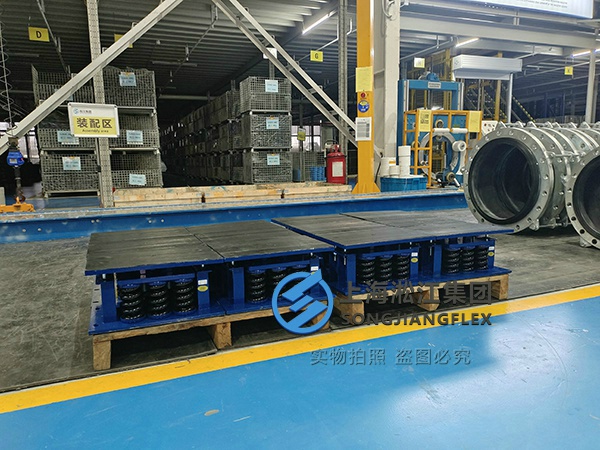
Our company’s new website is now live, featuring the latest product introductions. For more details, please visit https://shsjflex.com

